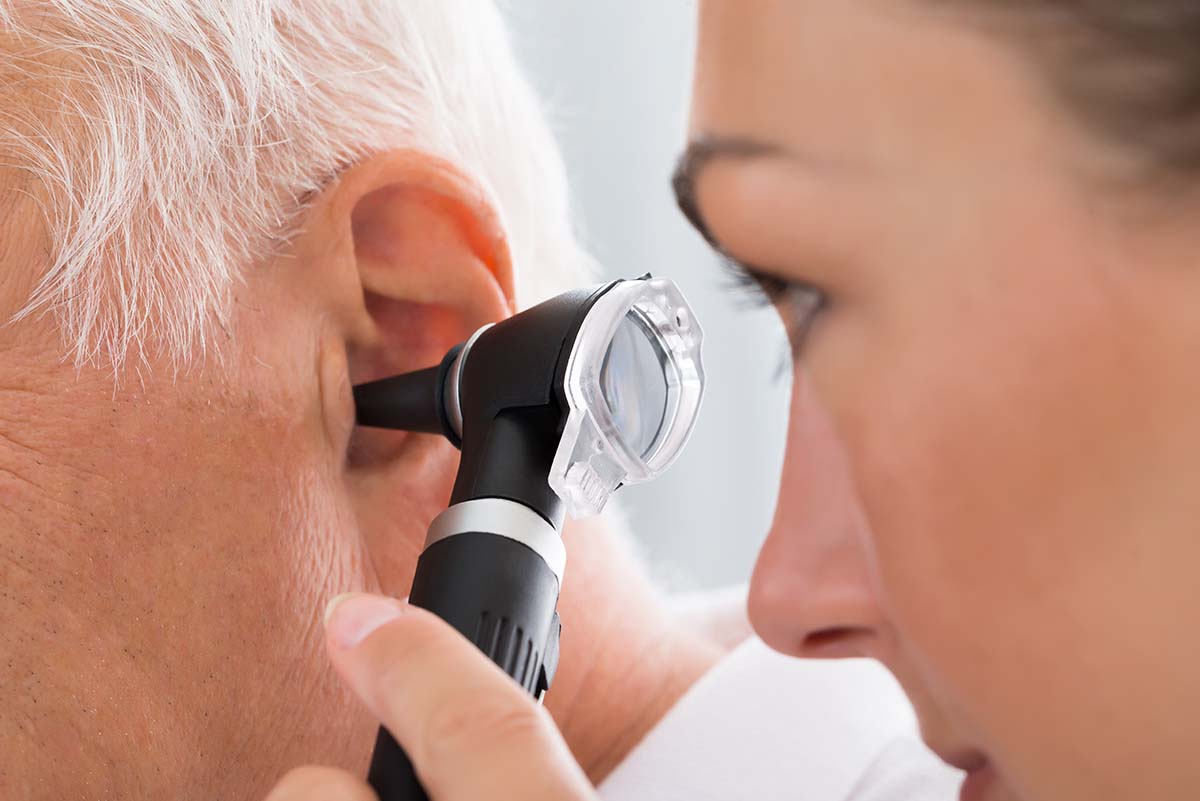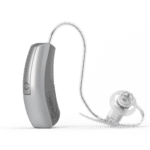Have you ever experienced that uncomfortable sensation of ear pain when swallowing, making you think “why does my ear hurt when I swallow”? It can make enjoying a meal or even a simple sip of water a daunting task. Fear not, as help is on the way. In this blog post, we will explore the various causes of ear pain when swallowing and delve into the treatments available to alleviate your discomfort. By learning about the possible reasons behind this pain and how to address them, you can regain control of your life and enjoy your favorite foods and drinks without fear of pain.
Short Summary
- Ear pain when swallowing is commonly caused by infections and Eustachian tube dysfunction.
- Treatment options range from antibiotics to home remedies, with prevention tips including practicing good hygiene, avoiding irritants and proper dental care.
- Diagnosis requires physical exams, imaging tests and a review of medical history for an accurate treatment plan.
Common Causes of Ear Pain When Swallowing

One may experience ear pain when swallowing due to a variety of factors, most commonly ear or throat infections and Eustachian tube dysfunction. These issues can cause inflammation and discomfort in the affected ear, making even the simplest act of swallowing a painful ordeal.
Let’s take a closer look at these common culprits behind ear pain when swallowing.
Middle Ear Infections
Middle ear infections, or acute otitis media, occur when the middle ear becomes inflamed and fluid accumulates due to a congested or obstructed Eustachian tube. The Eustachian tubes connect the middle ear to the back of the throat and help equalize pressure in the middle ear. When these tubes become blocked, usually from infections or inflammation, pressure builds up in the middle ear, leading to pain and discomfort.
Children are particularly prone to ear infections, including the middle ear infection, with signs such as ear pain, difficulty hearing, fever, and irritability. In adults, symptoms may include earache, stabbing pain, and potential ear drainage.
Treatment options for middle ear infections include prescribed antibiotics, home remedies and self-care, and in some cases, surgical interventions.
Throat Infections
Throat infections, such as strep throat and tonsillitis, can also lead to referred ear pain when swallowing. The pain experienced in the ear is not directly caused by the throat infection itself, but rather as a result of the cranial nerves and Eustachian tubes being affected by the infection.
Strep throat, for instance, is a bacterial infection that causes a severe sore throat and can lead to ear pain when swallowing. Tonsillitis is an inflammation and infection of the tonsils. It is usually caused by an ear or throat infection. Nose and throat infections, such as tonsillitis, often present symptoms including:
- a sore throat
- fever
- swollen lymph nodes
- difficulty swallowing
Treatment for throat infections generally involves antibiotics, especially for bacterial infections like strep throat, while viral infections are managed by alleviating symptoms only.
Eustachian Tube Dysfunction
Eustachian tube dysfunction is another common cause of ear pain when swallowing. This condition is characterized by:
- Blocked or dysfunctional Eustachian tubes
- Infections and inflammation that can cause the Eustachian tubes to become obstructed
- Increased pressure and discomfort in the middle ear
Treatment options for Eustachian tube dysfunction may include decongestants to alleviate any blockage and antibiotics to effectively clear any infections. By addressing the underlying cause of the dysfunction, the discomfort and pain experienced when swallowing can be relieved.
Less Common Causes of Ear Pain When Swallowing
While ear and throat infections and Eustachian tube dysfunction are the most common causes of ear pain when swallowing, there are other less frequent culprits to consider. These may include dental issues, temporomandibular joint dysfunction, and neurological conditions.
Let’s delve deeper into these less common causes and how they can contribute to ear pain when swallowing.
Dental Abscess
A dental abscess, a bacterial infection resulting in the accumulation of pus in the teeth and gums, can cause referred ear pain when swallowing due to its close proximity to the ear. Symptoms of a dental abscess include intense and throbbing pain in the affected tooth.
It is crucial to address dental abscesses promptly by visiting a dentist to remove the abscess and drain the pus, ultimately reducing the pain.
Temporomandibular Joint Dysfunction
Temporomandibular joint (TMJ) dysfunction is a disorder of the jaw muscles and joints that can result in facial, mandibular, and cervical pain. In some cases, the pain caused by TMJ dysfunction can radiate to the ear, resulting in ear pain when swallowing.
Treatment for TMJ dysfunction generally involves making lifestyle modifications, taking rest, and administering nonsteroidal anti-inflammatory drugs, such as ibuprofen.
Neurological Conditions
Certain neurological conditions, such as glossopharyngeal neuralgia, can cause ear pain when swallowing. Glossopharyngeal neuralgia is a neurological condition that affects the glossopharyngeal nerve, causing sharp, stabbing throat pain that can radiate to the ear when swallowing.
Treatment for this condition typically involves prescription medication to manage the pain.
Diagnosing the Cause of Ear Pain When Swallowing
Identifying the underlying cause of ear pain when swallowing is crucial for obtaining the appropriate treatment and relief. The diagnostic process typically involves physical examinations, imaging tests, and a review of medical history.
Let’s explore each of these diagnostic steps in more detail.
Physical Exams
During a physical exam, a healthcare provider will inspect your ears, throat, and sinuses for signs of infection or other issues. They may use an otoscope to look inside your ear and evaluate for redness, swelling, or fluid accumulation.
A thorough physical examination can provide valuable information about the cause of ear pain when swallowing.
Imaging Tests
Imaging tests, such as X-rays or CT scans, may be utilized to identify structural issues or infections that could be causing ear pain when swallowing. These tests provide a detailed view of the internal structures of the ear, throat, and surrounding areas, helping healthcare providers pinpoint the source of the pain.
By using imaging tests, healthcare providers can accurately diagnose the cause of ear pain when swallowing.
Medical History
Discussing your personal and family medical history with your healthcare provider can help identify potential causes of ear pain when swallowing. This may include any history of ear or throat infections, allergies, or exposure to irritants.
By sharing this information, your healthcare provider can make a more accurate diagnosis and recommend the most effective treatment options.
Treatment Options for Ear Pain When Swallowing

Once the cause of ear pain when swallowing has been diagnosed, various treatment options can be considered depending on the underlying issue. These may include antibiotics and medication, home remedies and self-care, or surgical interventions in more severe cases.
Let’s discuss each of these treatment options in more detail.
Antibiotics and Medication
Antibiotics may be prescribed for bacterial infections, such as bacterial throat infections or middle ear infections. These medications can help to eliminate the infection and alleviate the associated pain. In addition to antibiotics, other medications like pain relievers or decongestants may be prescribed to help manage symptoms.
Over-the-counter pain relievers, such as ibuprofen or acetaminophen, can provide temporary relief from ear pain when swallowing. Decongestants can also be helpful in cases where congestion or inflammation is causing Eustachian tube dysfunction. It is essential to follow your healthcare provider’s recommendations for medication usage and dosages.
Home Remedies and Self-Care
There are several home remedies and self-care strategies that can help alleviate ear pain when swallowing. Applying a warm compress to the affected ear can provide relief by reducing inflammation and promoting blood flow. Saltwater gels can also help soothe a sore throat and reduce pain when swallowing, especially in cases of throat infections.
Some ways to manage ear pain when swallowing include:
- Taking over-the-counter pain relievers
- Staying well-hydrated
- Getting plenty of rest
- Avoiding irritants such as smoke and loud noises
These measures can help promote healing and minimize discomfort.
It is important to remember that while home remedies can help alleviate symptoms, it is essential to consult a healthcare provider for an accurate diagnosis and appropriate treatment plan.
Surgical Interventions
In some cases, surgical interventions may be necessary to treat the underlying cause of ear pain when swallowing. These procedures may include ear tube placement, tympanoplasty, or stapedectomy, depending on the specific issue and severity of the condition.
Surgery may also be required for dental abscesses or to correct temporomandibular joint dysfunction. It is crucial to discuss all available treatment options with your healthcare provider to determine the most suitable course of action for your individual situation.
Prevention Tips for Ear Pain When Swallowing
Maintaining good hygiene, avoiding irritants, and practicing proper dental care are all essential steps to prevent ear pain when swallowing. By following these tips, you can minimize the risk of developing ear or throat infections and maintain your overall ear health.
Hygiene and Ear Care
Keeping your ears clean and dry is crucial in preventing infections that can lead to ear pain when swallowing. Gently clean your ears with a washcloth and finger, making sure not to insert anything into the ear canal.
Additionally, breastfeeding for the first 6 months of an infant’s life and controlling allergies can help reduce the risk of ear infections.
Avoiding Irritants
Minimizing exposure to allergens, smoke, and loud noises can help prevent ear pain when swallowing and reduce the risk of ear and throat pain. If you are a smoker, consider quitting to decrease your chances of developing ear and throat infections.
Wearing a face mask when handling chemicals or other irritants and using ear protection in noisy environments can also help protect your outer ear from potential damage.
Dental Care
Proper dental care is essential for preventing dental-related ear pain when swallowing. This includes:
- Brushing and flossing regularly
- Visiting the dentist for routine checkups and cleanings
- Avoiding sugary foods that can contribute to tooth decay and dental abscesses.
By maintaining good oral hygiene, you can help prevent dental issues that may lead to ear pain when swallowing.
Summary
In summary, ear pain when swallowing can be caused by various factors, including common culprits such as ear and throat infections, Eustachian tube dysfunction, and less frequent causes like dental issues, temporomandibular joint dysfunction, and neurological conditions. Proper diagnosis and treatment are essential for addressing the underlying cause of the pain and providing relief.
With the knowledge gained from this blog post, along with seeking appropriate medical care and following prevention tips, you can take control of your ear health and enjoy a pain-free life. If you’re looking for professional assistance and advanced hearing solutions, consider Ear to Hear, a leading hearing aid company. Their dedication to personalized care and state-of-the-art technology can provide you with the best possible hearing experience.
Frequently Asked Questions
What does it mean when your ear hurts when you swallow?
Ear pain when swallowing is likely a sign of dysfunction in the Eustachian tube, which can be caused by allergies, sinus infections, and changes in altitude.
Allergies, sinus infections, and changes in altitude can all cause dysfunction in the Eustachian tube, leading to ear pain when swallowing.
It is important to identify the underlying cause of the ear pain in order to treat it.
Can ear infection go away on its own?
Many ear infections, especially those caused by viruses, can resolve without antibiotics in 2-3 days. In certain cases, such as children under 6 months and those with severe symptoms, antibiotics may be necessary for complete recovery.
Why does my ear hurt?
Ear infections, allergies, sinus infections, tooth infections, earwax buildup, altitude changes and TMJ syndrome can all cause ear pain.
It is important to identify and treat the underlying cause of earache in order to achieve lasting relief.
How can Eustachian tube dysfunction cause ear pain when swallowing?
Eustachian tube dysfunction can cause ear pain when swallowing due to pressure changes in the inner ear.
What are some home remedies for managing ear pain when swallowing?
To manage ear pain when swallowing, warm compresses and saltwater gels can provide relief, and over-the-counter painkillers can help too.


